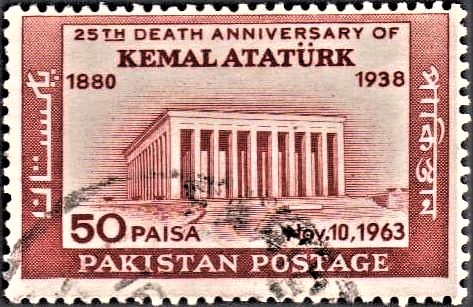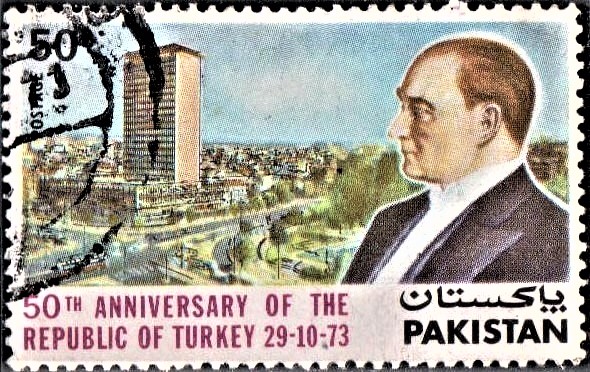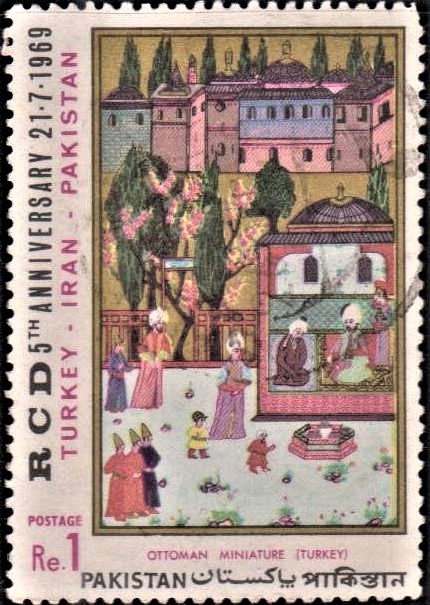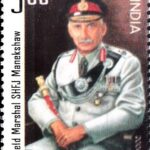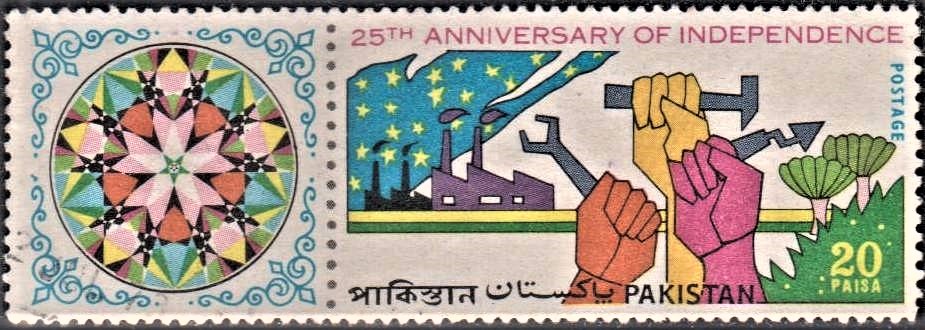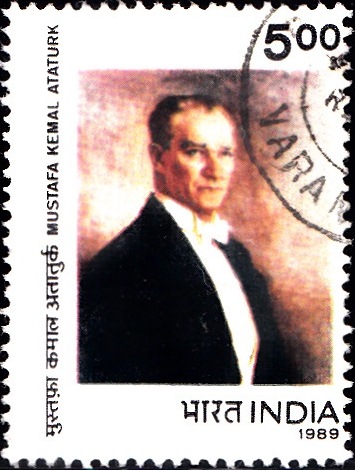
India on Mustafa Kemal Ataturk
A commemorative postage stamp on Mustafa Kemal Pasa Atatürk (1881-1938), 1st President of Turkey (1923-38) :
 Issued by India
Issued by India
Issued on Aug 30, 1989
Descriptions of Designs : The stamp and First Day cover depict the personality based on photographs supplied by the Turkish Embassy in India. The cancellation has been designed by Mrs. Nenu Gupta.
Type : Stamp, Postal Used
Colour : Multi Colour
Denomination : 500 Paise
Overall size : 3.91 x 2.90 cms.
Printing size : 3.55 x 2.54 cms.
Perforation : 13 x 13
Paper : Imported Un W/M adh. Gr. Coated stamp paper
Number Printed : 5,00,000
Number per issue sheet : 35
Printing Process : Photogravure
Printed : India Security Press
Name : Ali Riza oglu Mustafa (Mustafa son of Ali Rıza)
Born on May 19, 1881 at Thessaloniki, Greece
Died on Nov 10, 1938 at Istanbul, Turkey
About :
- Mustafa Kemal Ataturk, the Founder and First President of the Republic of Turkey, was born in 1881 in a modest family. After completing secondary education, he entered the Military Lycee. After graduating from the Military Lycee, he went on to join the Istanbul War School from where he graduated with honours. In 1905, he received his diploma as Staff Captain from the Military Staff Academy.
- As a staff officer his work was soon appreciated. Between 1905 and 1918, he obtained with merit, superior grades in the military hierarchy. He showed exceptional qualities of organisation and control while at the head of the army. He represented Turkish Armed Forces at several military manoeuvres in Europe. In 1911 he fought against Italians in Tripoli and in 1914 he was Military Attache in Sofia. During the First World War he fought against the British and Russian forces.
- He started the Turkish War of National Liberation on May 19, 1919. After the First World War when Turkey was invaded and Western Anatolia occupied, he started preparations for the war of National Independence from Samsun, a port on the Black Sea Coast. He stated his aim very clearly “….This country, under all circumstances, will become modern, civilized and innovative….”. After the attainment of independence in 1922, Ataturk’s main activities consisted of focussing on reforms aimed at modernising the nation. He abolished the Sultanate in 1922 and proclaimed the Republic in 1923. The Khalifat as well as all theocratical institutions were done away with in 1924. He introduced the principle of secularism as one of the basic principles of the new state. A variety of socio-political reforms were introduced.
- Adoption of international calendar and time, adoption of new secular laws, adoption of Latin alphabet, law changing the situation of women in economic and social life (right to vote and be elected) are some of his main reforms. Ataturk’s guide in life was science. His views on education “…required generations which were absolutely free in thought, conscience and education”.
- The basic idea and spiritual and intellectual aspect of Ataturk’s views were based on universal Peace. All his life he considered war as a crime. According to him, war was justified, however, as an instrument to defend justice. It is in the light of this belief, that Ataturk formulated the most essential principle of the Republic of Turkey: “Peace at home, peace in the world”. The National Liberation Movement in Turkey evoked strong support in India. The Indian support was not only moral – a fund raised with the collection of individual contributions was sent to Turkey, which was used to equip a full-fledged regiment.
- Jawaharlal Nehru often cited Ataturk as a shining example for India in its struggle for freedom. In a speech in 1928, Nehru said “…..We have seen what can be done in a brief span of years and even months by Kemal Pasha who is not afraid to break through ancient custom and prejudice. What has been done in Turkey can be done in India. But it can only be done in the manner of Kemal Pasha, by fearlessly facing obstacles and removing them and not waiting till the crack of doom for slow reform….”.
- Text : Courtesy Turkish Embassy in India.


